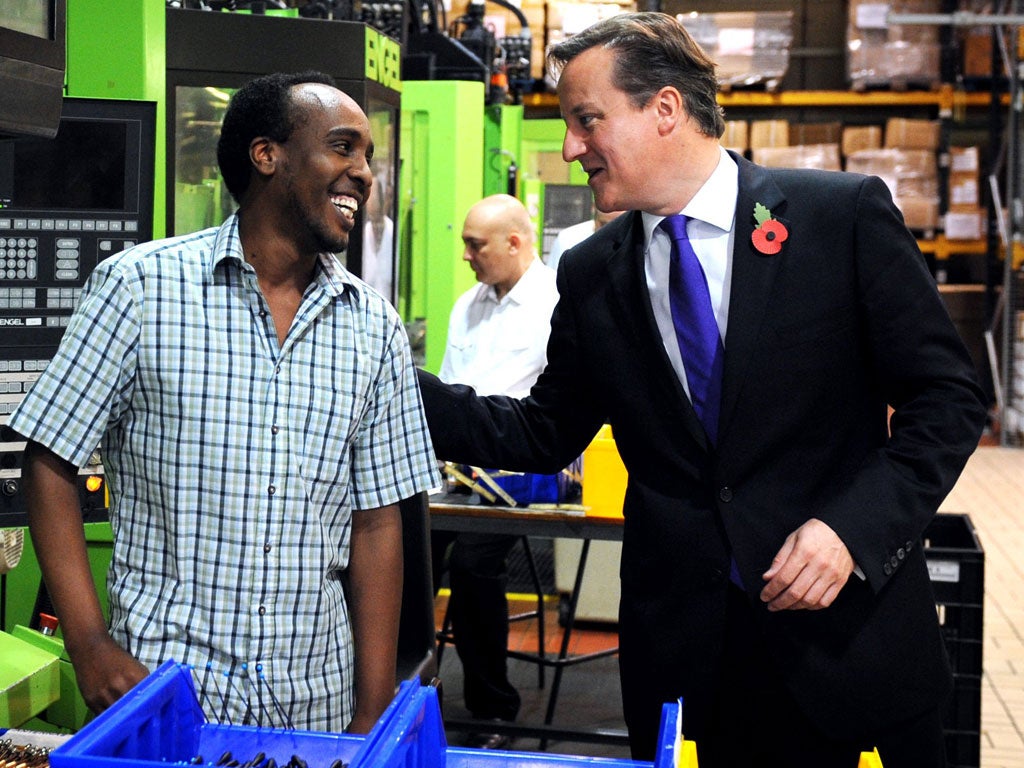Olympic bounce puts Britain back in the black
Growth figure exceeds expectations but ministers remain wary of declaring downturn is over

Your support helps us to tell the story
From reproductive rights to climate change to Big Tech, The Independent is on the ground when the story is developing. Whether it's investigating the financials of Elon Musk's pro-Trump PAC or producing our latest documentary, 'The A Word', which shines a light on the American women fighting for reproductive rights, we know how important it is to parse out the facts from the messaging.
At such a critical moment in US history, we need reporters on the ground. Your donation allows us to keep sending journalists to speak to both sides of the story.
The Independent is trusted by Americans across the entire political spectrum. And unlike many other quality news outlets, we choose not to lock Americans out of our reporting and analysis with paywalls. We believe quality journalism should be available to everyone, paid for by those who can afford it.
Your support makes all the difference.Ministers expressed cautious hopes that the economy has turned the corner but admitted doubts about the strength of the recovery after official figures showed that Britain's double-dip recession has ended.
Gross domestic product rose by one per cent between July and September, the fastest growth for five years, helped by an "Olympic bounce" from ticket sales and a comparison with the extra bank holiday for the Queen's Diamond Jubilee celebrations in the previous quarter.
In public, ministers spoke of a "healing economy" and admitted Britain still had a long way to go. In private, they conceded that some future statistics could be disappointing, making yesterday's figures "a dangerous moment" for the Government if great public expectations were raised.
Some ministers admitted that low growth is the best the Coalition can hope for until the 2015 election, fearing a "voteless recovery", because the squeeze on living standards will continue.
Such caution was justified when Ford announced 1,400 job losses and the closure of two UK sites. In another setback last night, David Cameron was rebuked by the statistics watchdog for appearing to pre-empt the GDP figures during Prime Minister's Questions on Wednesday, when he said "the good news is going to keep coming".
In a letter to the Prime Minister, Andrew Dilnot, chairman of the UK Statistics Authority, reminded him of a requirement not to disclose "any suggestion of the size or direction of any trend". A Downing Street spokesman insisted: "The PM was talking about recent good news on the economy, unemployment, crime and the health service. He did not refer to the GDP figures, and the UK Statistics Authority has not found there was any breach of the code."
Welcoming the better-than-forecast figures, Mr Cameron said: "There is still much to do, but these figures show we are on the right track, and our economy is healing."
George Osborne, the Chancellor, said Britain faced "many economic challenges at home and abroad". He added: "By continuing to take the tough decisions needed to deal with our debts and equip our economy for the global race we're in, this Government is laying the foundations for lasting prosperity." The figures will make it more difficult for Labour to repeat its claim that the longest double-dip recession since 1950 was "made in Downing Street".
Ed Balls, the shadow Chancellor, welcomed the figures but insisted that "underlying growth remains weak". He said: "A one-off boost from the Olympics … is no substitute for a plan to secure and sustain the strong recovery that Britain desperately needs if we are to create jobs, get the deficit down and make people better off."
The Office for National Statistics said the "Olympic effect" added about 0.2 per cent to the third-quarter GDP figure. It said "the underlying pattern is one of subdued economic expansion", with GDP no bigger than it was a year ago. While the service sector increased by 1.3 per cent, construction fell by 2.5 per cent.
The Confederation of British Industry expressed fears that the recovery was largely confined to the London area. John Cridland, the CBI director-general, said: "We expect conditions to remain positive going into the fourth quarter, reflecting some easing of the pressure on household budgets from lower inflation. But the global economic environment remains challenging."
David Kern, chief economist at the British Chambers of Commerce, said: "While the news is positive, the estimate must be put in context. Compared to a year earlier, the figures show that the economy is stagnant.
Join our commenting forum
Join thought-provoking conversations, follow other Independent readers and see their replies
Comments